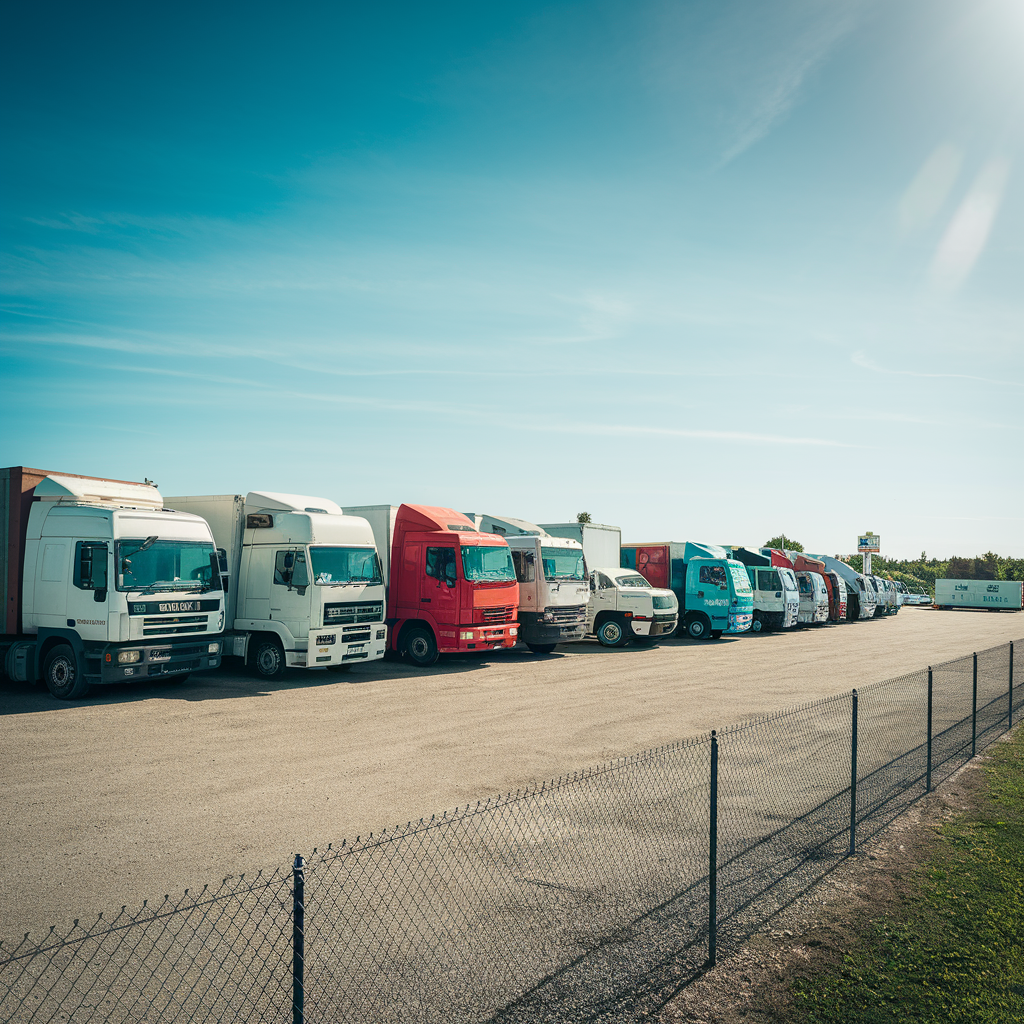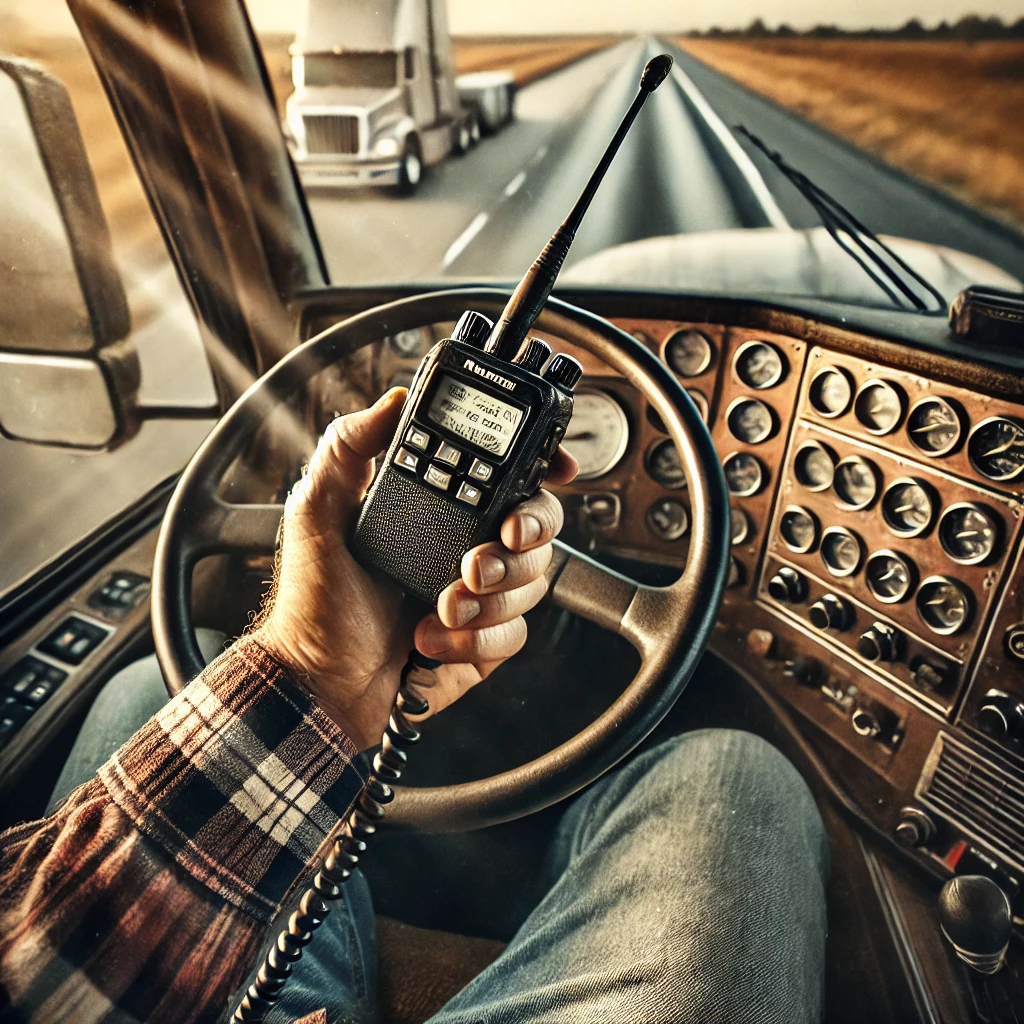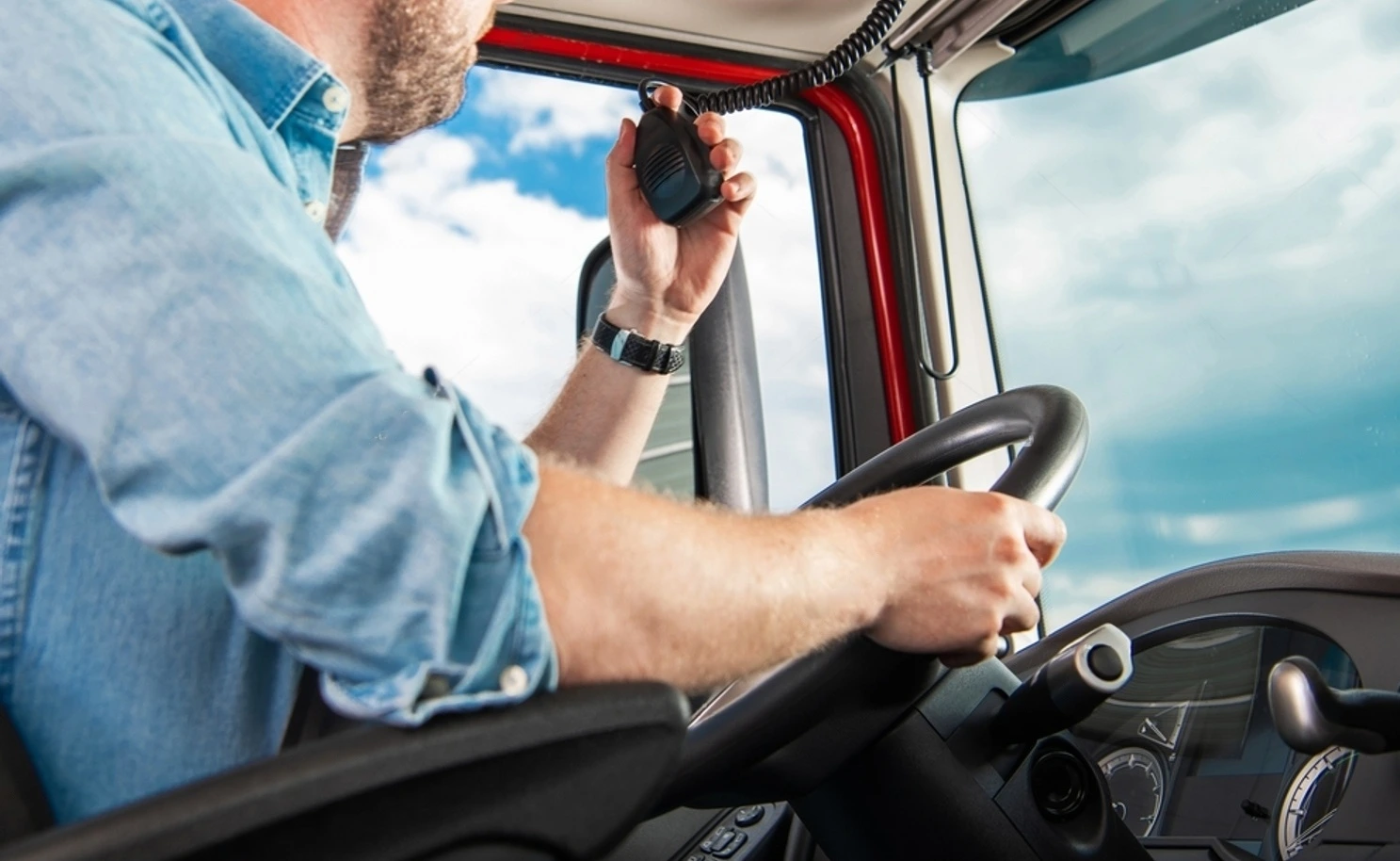
A-Z GLOSSARY OF TRUCKING TERMS
The trucking industry is a large one, with its own unique culture, rules, regulations, and operational protocols. For newcomers, it can take some time to adapt, especially when experienced truckers use common trucker lingo and slangs that might sound like a foreign language.
To navigate this world and communicate effectively, it’s essential to familiarize yourself with common trucking terms. The good news? This compilation provides nearly all the key terms you need to understand, covering everything from operational jargon to regulatory bodies. Consider this your ultimate guide to mastering trucking lingo and engaging confidently with your colleagues.
A
- Accessorial Charges: Extra fees for transportation services such as fuel surcharges, inside delivery, waiting time, or storage.
- Aggregate Gross Weight: The total weight of a vehicle and its load.
- Air Brake: A type of brake that uses air (usually compressed) to function.
- Alligator: Pieces of a tire on the road, also called ‘gators.’
- Asset-Based Carrier: A carrier that uses its equipment and vehicles to transport freight.
- ATA (American Trucking Associations): The largest trade association for the trucking industry in the U.S.
- Authority: The legal permission given by the FMCSA to operate for hire.
- Average Length of Haul: The average distance (in miles) that freight is transported.
- Axle: The shaft on which the wheels revolve; includes brakes and suspension.
B
- Backhaul: The return trip of a truck transporting cargo or freight.
- Bill of Lading (BOL): A legal document between the shipper and carrier detailing the type, quantity, and destination of the goods.
- Blind Spot: The area around a commercial truck where the driver has limited or no visibility.
- Bobtail: When a semi-truck operates without the trailer attached.
- Breakbulk: A method of shipping goods individually rather than in containers.
- Broker: An individual or company that arranges transportation of goods by truck for a fee.
C
- Cab: The driver’s compartment of a commercial truck.
- Cabover: A truck where the cab is situated over the engine, making the vehicle shorter in length.
- Carrier: A company that transports goods.
- CB (Citizens Band Radio): A two-way radio that peaked in the 1970s. CB radios remain a staple among truckers and motorists, used for purposes ranging from traffic updates and emergency communications to casual conversations.
- CDL (Commercial Driver’s License): A license required to operate vehicles with a gross vehicle weight rating of 26,001 lbs or more.
- Common Carrier: A business available to the public for transporting goods.
- Consignee: The person or place where a shipment is to be delivered.
- Consignor: The person or place where a shipment originates.
- Cross-Docking: Unloading goods from an incoming vehicle and loading them directly onto outbound transport.
- Cube Out: When a trailer is filled to capacity without exceeding the weight limit.
D
- Dead Mile: Miles a truck is driven without carrying freight (also called empty miles).
- Deadhead: Driving a truck without cargo.
- Dedicated Lane: A route a driver travels frequently.
- Demurrage: A fee charged for holding a trailer for too long.
- Detention Time: The time a driver waits for cargo to be loaded or unloaded, potentially incurring fees.
- Dispatch: The act of sending a driver on a run.
- DOT (Department of Transportation): U.S. government body overseeing transportation infrastructure, laws, and regulations.
- DOT Inspection: An examination of commercial motor vehicles to ensure compliance with safety regulations.
- Double Drop: A trailer designed to haul very large freight.
- Driver Log: A record of a driver’s hours of service.
- Drop and Hook: A method where a driver swaps a loaded trailer for another without waiting for loading or unloading.
- Dry Van: A standard enclosed semi-trailer for general freight hauling.
E
- ELD (Electronic Logging Device): A device that automatically records a truck’s driving time and service hours.
- Expedited: Shipping faster than standard transit times.
F
- FAK (Freight of All Kinds): A mixture of different products shipped together in one shipment.
- FMCSA (Federal Motor Carrier Safety Administration): A branch of the DOT regulating the trucking industry.
- Forced Dispatch: Assigning loads to drivers without their input.
- FSC (Fuel Surcharge): A fee paid for the cost of fuel.
- Full Truckload (FTL): A truck carrying one dedicated shipment that typically fills the entire semi-trailer.
G
- GVW (Gross Vehicle Weight): The total weight of a vehicle and its payload.
- GVWR (Gross Vehicle Weight Rating): The maximum operating weight of a vehicle, as specified by the manufacturer.
H
- Hazmat (Hazardous Materials): Dangerous goods posing a risk to health, safety, or the environment.
- HOS (Hours of Service): Maximum time a commercial driver can be on duty.
- Hot Shot: Expedited freight deliveries that are time-sensitive.
I
- IFTA (International Fuel Tax Agreement): An agreement to simplify fuel use tax reporting for interstate carriers.
- Inbond: Goods that have not cleared customs.
- Intermodal: Transporting freight using multiple modes (e.g., truck and rail).
J
- Jackknife: A skidding situation where the trailer spins and faces backward.
- JIT (Just in Time): Inventory management strategy ordering goods only as needed.
K
- Kingpin: The coupling pin on the front underside of a truck trailer.
L
- Lanes: Paths or routes for freight transport.
- LCL (Less than Container Load): Smaller ocean freight shipments.
- Linehaul: Freight movement between major cities.
- Live Load/Unload: When a driver waits for cargo to be loaded or unloaded.
- LTL (Less Than Truckload): Shipping method combining several smaller shipments in one truck.
M
- Manifest: A document listing cargo, passengers, and crew.
- MC Number: Identifies carriers in interstate and intrastate commerce.
O
- Overdimensional Load (OD): Freight that exceeds standard size limits.
- Owner-Operator: A self-employed driver who owns their trucking business.
P
- P&D Driver (Pickup and Delivery Driver): A driver handling local or regional deliveries.
- Pallet Jack: A tool for lifting and moving pallets.
- Payload: The weight of the load being hauled.
- Placard: A sign marking vehicles carrying hazardous materials.
- Pre-Haul: Preparing cargo for transport.
- Private Carrier: A business operating trucks for its own products.
- Proof of Delivery (POD): A receipt confirming delivery.
- Public Scale: A certified state scale for weighing vehicles.
R
- Rate Confirmation: A document confirming the agreed payment for a load.
- Reefer: A refrigerated trailer maintaining specific temperatures.
- Relay Driving: System where drivers switch trucks after reaching driving limits.
- Roadrailer: A trailer that works on roads and railroads.
- Road Test: A driving test required to obtain a CDL.
- Rollover: A trucking accident where a truck tips over.
- RPM (Revolutions per Minute): Measures rotational frequency of an engine.
S
- Satellite Tracking: GPS technology for vehicle tracking.
- Shag: A short truck moving trailers within yards.
- Shipper: The supplier or owner of goods.
- Short Haul: Short-distance trucking route.
- Sleeper: A sleeping compartment behind the cab.
- Sliding Fifth Wheel: A movable fifth wheel to redistribute weight.
- Straight Truck: A truck with cargo mounted directly on the frame.
T
- Tandem: Two axles positioned together.
- Terminal: A facility for freight preparation.
- Through Trailer: A trailer moved from origin to destination without changing vehicles.
- Tractor: The engine-powered unit of a truck.
- Trailer: The cargo-carrying unit of a truck.
- Tractor-Trailer: A truck consisting of a tractor and a trailer.
- Transloading: Transferring goods between transport modes.
- Tri-Axle: Three axles grouped together.
- Turnpike Double: A tractor with two long trailers.
- TWIC: An identification card for secure maritime access.
W, Y, Z
- Waybill: Document detailing goods being transported.
- Weigh Station: A checkpoint for weighing vehicles.
- Wharfage: A fee for handling cargo at a dock.
- Yard Jockey: A worker moving trailers in a yard.
- Yaw: A vehicle’s side-to-side swaying motion.
- Yield: The weight of goods loaded for delivery.
- Z-Plate: Special license plate for truck tractors.
- Zone-Hopping: Loading and unloading within the same area for increased pay.
- Zone Rate: Rate for transport based on geography.
CONCLUSION
We have gotten to the end of the trucking terms, and we hope that you have been able to master a couple of trucking terms by reading through. We recommend saving this blog post so that you can always go back to it when you need to.
ABOUT INSPIRED FUNDING
Inspired Funding has helped hundreds of truck companies secure the vehicles they need to succeed. Whether you’re expanding your fleet, starting a new business, or navigating bad credit, we’re here to make financing simple and stress-free.
We specialize in truck financing designed to get your business on the road to success. From box trucks and dump trucks to cargo vans, semi-trucks, and other vocational vehicles, our process is easy. Get guaranteed low payment on used trucks and no hard pulls on credit scores.
With competitive interest rates, flexible down payments, and manageable repayment plans, you can focus on growing your business without the stress. Start your journey to funding today!



